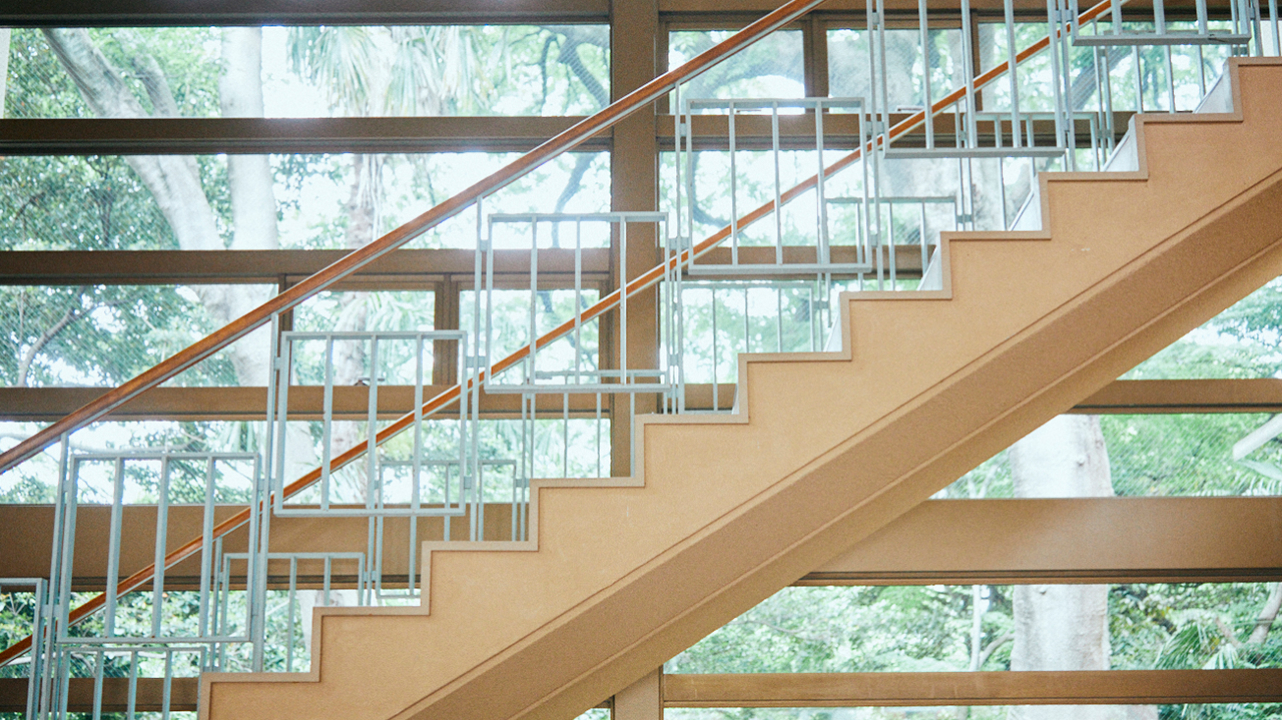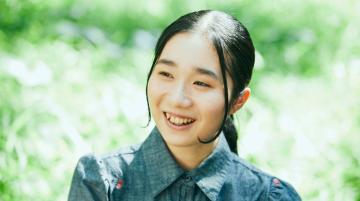Being moved and always asking myself questions
Hinako Iwakura has been doing volunteer work since high school, thinking “It doesn’t matter if it’s something I won’t be able to keep doing, so long as I feel moved.” She continued with various activities after coming to Meiji Gakuin University, including studying abroad in Sweden during the fall semester of 2022. Here she talks about what moved her, the questions she asked, and what she is doing to prepare for her future.


hinako Iwakura
Fourth-year student, Department of Social Work
Hinako Iwakura is a student in the Social-work Course of the Department of Social Work, Faculty of Sociology & Social Work. She started taking ballet lessons when she was young, and she enjoys art appreciation and watching movies and foreign dramas. That might have influenced her decision to study abroad. The books that particularly influenced her were Frankl’s and Hugo’s .
When life gives you lemons…
Someone once wrote, “When life gives you lemons, make lemonade,” using lemons as a metaphor for the hardships, pain, and suffering we experience in life. I first heard that saying when I was in high school, reading a newspaper article about a lemonade stand that sold lemonade to raise money for children with cancer. Looking back, I have lived with and met many people with various difficulties. That includes the grandmother I lived with, who had dementia since before I can remember.
For example, when I was in high school, I volunteered to spend time with the siblings of sick and disabled children in a hospital. The siblings of sick children are likely to feel anxiety and pressure due to their situation, and may have less time to spend with their parents, leading to lowered self-esteem and loneliness. I saw parents who, to stay with their hospitalized children, had to sleep every night on cots so narrow it was difficult to turn over and eat meals they bought at a convenience store, and I saw medical workers working frantically to save lives. That is not anyone’s fault, but rather a situation that exists due to the state of our society. I felt frustrated seeing people not getting the care they needed where they needed it. Having witnessed such unreasonableness and inequality, I decided to enroll in the Department of Social Workbecause as an adult I wanted to be a person who supports other people, finding a job that allowed me to do so.

Learning about our “responsibility to respond”
Immediately after entering Meiji Gakuin, I enrolled in a course called “Contemporary Peace Studies 1,” where I learned about our “responsibility to respond.” The course focused on the aftermath of the atomic bombing of Hiroshima and Nagasaki, and I had the opportunity to hear a very moving talk by an atomic bomb survivor. Every class, I wondered whether there was anything I could do to prevent more people from suffering from atomic bombs. All the classes I took in the 2020 spring semester were held online, and I couldn’t go outside much. I wanted to do something, but there was nothing I could do. That inability to take action left me feeling frustrated.
While studying in the Department of Social Work, including my “Contemporary Peace Studies 1” course, I recalled receiving letters from UNICEF when I was in elementary school. My motherhasbeen making monthly donations to UNICEF since the month I was born. “Why do you donate money to children you don’t even know?” I asked her. “Because there are children who were born in the same era as you, but depending on the country they were born in, they will lead very different lives,” she said. “Sadly, some children are forced to live a hard life, because they’re born into wars or hungry all the time.”
“Responsibility to respond” might sound like a difficult concept, but I believe it means listening to another person’s voice and responding to the extent you can because you are moved and want to do something about what you’ve heard. At that moment, my mother’s words led me to feeling a responsibility to respond.

Going to Sweden
I had vaguely wanted to study abroad since my first year in college. I liked foreign dramas and movies and had many opportunities to see performances by ballet companies coming to Japan from overseas, so I was strongly attracted to and interested in foreign countries.
In my Department of Social Work courses, I learned that Sweden is a welfare state that excels not only in social security but also in areas such as gender and environmental issues, so Sweden felt like a natural choice as my study abroad destination. Of course, Japan’s welfare system has good aspects too, but I also felt that it has some problems, and I was sure the same was true in Sweden. I wanted to see with my own eyes and experience firsthand what issues Sweden might be facing. So in the fall of 2021, I applied for an exchange program at Södertön University in Sweden and departed in the fall of 2022.
A society created from leeway
In Sweden, I was impressed by the many fathers pushing strollers, the green environment, and all the universities, hospitals, and welfare facilities. Everywhere I went, the buildings were impressively spacious and warm, like a home, and I thought, “Finally I’m really in Sweden.” A French friend I met in Sweden had come to learn about gender equality, and an Italian friend had come to learn about sustainability. So Sweden was such an attractive country that people were coming not only from Japan but other developed countries to see what they could learn. Seeing the problems a country like that faced gave me high expectations for finding hints toward creating a much better society.
Of course, there were also times when I felt frustrated: Twisting the faucet in the morning and no water coming out. Power outages that lasted the entire day. Letters from Japan that never got delivered. Sweden’s welfare system may beideal, but I found myself worrying about things I didn’t have to worry about while living in Japan.
I felt that Sweden was full of “leeway” everywhere, from how the people there use time to how they use land. One example is fika, the cultural practice of chatting over tea or coffee with family, friends, and colleagues to deepen friendships and refresh yourself. Even at Södertön University, we had fifteen minutes of fika per class, which I always spent chatting with classmates. In addition to fika, many of my social science classes were discussion-based, so I could work on assignments wherever I wanted, at the library, at cafes, and sometimes even while traveling. In winter, when there was little sunlight, I had plenty of time to cook elaborate meals. I felt that everyone could use their time during these periods of “leeway” however they wanted, and that they valued it highly.
In Japan, bashing for the people who take social assistance is sometimes a problem, but I wondered if the Swedes’ valuing personal time, their atmosphere of individualism, and the transparency of government work in Sweden might be why I saw less discrimination and prejudice against social assistanceAlthough comparing Sweden and Japan is difficult, I felt that there are things we can learn from each other, and I came to believe that learning our differences is a step toward creating a better society.

Continuing to question myself
Japan seems to be a society where it is very difficult to get back on your feet after encountering difficulties like getting sick or losing your job. My own view, which may be overly ambitious, is that I want a society in which all people can live mentally, physically, and socially healthy lives with their own sense of purpose and have the ability to recover from such adversity. Therefore, I plan to enter graduate school to study public health, intending to do whatever I can toward that goal. I may not be able to change society myself through volunteerism and study, but I believe that a better society will exist after I’ve done everything I can.
While studying at Meiji Gakuin, my teachers and friends often asked, “Why do you think so?” This question I did not originally consider as a question became a personal interest, and eventually led me to the path I am now taking.
Put simply, public health considers the health of society as a whole. It considers everyone, whomever they are and wherever they were born, as deserving a life of vitality and dignity. It aims to make someone’s tomorrow a little better. In the hopes of moving one step closer to such a society, I will continue to value my encounters with and questions from others, be moved, and keep doing whatever I can at the time.

